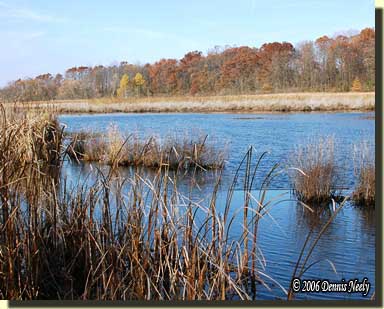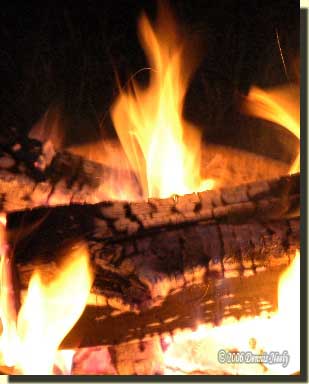A Brief Introduction:
The Lost Word Writers Group’s annual Halloween “open microphone night” is tonight at the Carnegie Branch of the Jackson District Library. All genres are represented, but as one might expect, horror writing rules the evening.
The LWWG is blessed with many talented writers and authors who publish their works in print and online venues both here and abroad. For some strange reason a good percentage of our writers dabble in the macabre, and are they good at it. Two long-standing members of our group are affectionately dubbed the “Heroes of Horror:” Devlin Giroux and T. G. Reaper. “Reaper,” as we call him, has made Amazon’s Best Seller List.
Well, I have endured my share of good-natured coaxing and a bit of threatening from certain “un-named writers” in the group. In the fall of 2014, I broke down and tried my hand at horror fiction. Cindy, Autumn, Devlin and the Reaper encouraged me to post the piece on this blog at Halloween. With our reading tonight, I thought I would once again share this gory 18th-century, backwoods tale, set on the banks of the River Raisin in the Old Northwest Territory. Read on if you dare…
MacMillan’s Cove
Drips fell from the ash paddle’s blade. The paddle dipped and pulled, then hooked outward in one fluid motion. Crimson maple leaves swirled in the River Raisin’s cool, fishy-smelling water. Dip…pull…hook…dip…pull…hook. The linen and leather clad wanderer rested the paddle across the gunwales. The wooden bateau drifted in the gentle current. Out of caution, the hunter’s right hand gripped the Northwest gun’s forestock as the little vessel eased around the river’s bend.
Not far ahead, before the river’s next turn, David MacMillan spotted a small sandy cove where a wooded hillside touched the Raisin’s clear waters. The tiny hollow appeared pleasant and inviting and out of place, not at all swampy like the mucky, treacherous cut banks that lined this stretch of the winding river.
 The sun touched the western tree tops; the brown-painted bow nudged the yellow sand. Smooth-bored trade gun in hand, the woodsman pulled the bateau ashore. Muzzle up, firelock ready, he crept to the edge of the hardwoods. Overhead a solitary crow cawed, refusing to fly away at the intruder’s advance.
The sun touched the western tree tops; the brown-painted bow nudged the yellow sand. Smooth-bored trade gun in hand, the woodsman pulled the bateau ashore. Muzzle up, firelock ready, he crept to the edge of the hardwoods. Overhead a solitary crow cawed, refusing to fly away at the intruder’s advance.
A short circular stalk through the bright-colored oaks, hickories and maples assured MacMillan he was alone. Returning to the shore, the hunter grabbed the hand-forged ring secured to the stem and dragged the bateau up on the sand. He pulled back the weathered tarp and began unloading the five sacks of wild rice and a pack of half-dressed deer hides destined for the trading post at Frenchtown, two hard day’s journey downriver.
Humming an old Irish ditty, MacMillan rolled the bateau over and rested a gunwale on the stacked sacks and bale. He threw the tarp over the vessel and its cargo, creating the night’s temporary shelter. With the Northwest gun’s barrel leaning against the humble abode, the cheerful woodsman dropped to his knees and set about digging a fire pit in the sand. The crow cawed three times, then flew to the east.
That night in mid-October, in the Year of our Lord, 1795, deep in the Old Northwest Territory’s backcountry, gold and orange and lavender clouds highlighted the end of a weary day. Still humming, MacMillan roasted a hand-sized chunk of venison haunch, skewered on a fresh-whittled witch-hazel branch, over the fire’s glowing coals. As the meat cooked, he’d carve off a slice with his butcher knife, then return the venison to the fire.
A thump out on the river brought MacMillan to his feet. The smoothbore’s muzzle swung to the origin of the sound; an uneasy thumb twitched as it pressed against the half-cocked hammer. A birch bark canoe slipped into the reach of the fire’s dancing light.
“I mean you no harm,” a gruff voice said from the darkness.
“Who are you, and state your business,” MacMillan asked.
“Joseph Lewis, a hunter and scout.”
“Well, come ashore. I suppose you’re looking to spend the night?”
“I’d share your fire,” Lewis said.
“There’s some venison left, if you like,” MacMillan said, as he took measure of the man standing before him.
Lewis volunteered little as he sat across from MacMillan and roasted a hunk of venison. He smiled now and then. He looked up and spoke of the beauty of the evening, commenting on the shimmering stars in the now cloudless heaven and the rising moon. The scruffy-looking visitor asked about the deer farther upriver, the number of hunters in the backcountry and if there were any Ojibwe or Pottawatomi camps in the area.
MacMillan obliged with a minimal report, noting this was his first season on the River Raisin. As was their habit, both men retired with their guns tucked in their wool blankets: MacMillan under his bateau and Lewis in the open on the opposite side of the fire.
 A little past midnight, MacMillan roused and rolled onto his right side. Orange embers pulsated in the fire pit, bathing the sandy cove in a blood-red light. The woodsman’s eyelids grew heavy. When he awoke again, an Ojibwe warrior sat cross-legged, staring into the coals. He was stripped naked, except for his moccasins and breechclout and his face and upper body were painted black, the sign of death.
A little past midnight, MacMillan roused and rolled onto his right side. Orange embers pulsated in the fire pit, bathing the sandy cove in a blood-red light. The woodsman’s eyelids grew heavy. When he awoke again, an Ojibwe warrior sat cross-legged, staring into the coals. He was stripped naked, except for his moccasins and breechclout and his face and upper body were painted black, the sign of death.
Under his four-point blanket, the woodsman’s hand slipped along the Northwest gun’s forestock. The veins in his neck throbbed; he fought to control his breathing. He pretended he was still asleep. His mind racing, MacMillan played out how he might warn Lewis. Then he realized another warrior, faint and ghost-like, slept in a tattered blanket beside Lewis.
As MacMillan tried to make sense of the perilous circumstance, the Ojibwe warrior took a pinch of tobacco from a leather pouch. The offering flamed up when he sprinkled it on the coals. He then stood, faced the bateau shelter and raised his hand, palm open. With his fingers spread wide, he moved his hand slow from west to east, then east to west as he spoke in his native tongue.
At the end of this incantation, the warrior’s black eyes pierced the innermost depths of MacMillan’s soul. Within the warmth of this wool blanket, he felt his skin grow as cold as if he had broken through the river’s January ice. In an instant, the calm night air smelled of strong tobacco mixed with the stench of putrid flesh. Uncontrollable shivers rippled up and down his spine, and it was then that the woodsman discovered his hand could no longer move, he could no longer move.
The Ojibwe turned back to the fire, pulled his tomahawk from the back of the sash that girdled his waist and held it aloft with both hands. The chanted syllables echoed in the hardwoods. MacMillan wondered why Lewis did not spring to his feet. At the end of the somber song, the warrior lowered the tomahawk, walked to the sleeping Indian and straddled his body.
The black, piercing eyes glanced straight at MacMillan. With a war hoop and a swift, downward blow, the warrior buried the tomahawk in the sleeping Indian’s right temple. The blow made no sound. The body did not move or jerk or convulse. There was no blood. The assailant left the tomahawk where it was with the maple handle angling up.
“For God’s sake, do something, Lewis!” The scream echoed in MacMillan’s mind, but his lips didn’t, couldn’t move. “Lewis! Lewis! For God’s sake, wake up Lewis!”
The Ojibwe returned to the bateau shelter, reached down and grasped the handle of MacMillan’s trade ax. MacMillan felt the ax’s handle slip from his belt. Again the warrior turned to the fire and raised the ax aloft, suspended horizontal between both hands. The chanted lyrics were the same, the tones just as somber, just as foreboding, just as unforgettable.
The mystic demon grasped the ax’s hickory haft in his right hand. MacMillan glanced across the fire pit. The sleeping Indian, the tomahawk, the blanket, all were gone, the sand undisturbed. The Ojibwe walked to Lewis, who faced away from the fire, and straddled the hunter’s body. This time, when the warrior looked at MacMillan the hint of a smirky, sly smile appeared.
As the ax rose above the Ojibwe’s head he let out the hideous war hoop. The blow came quick. The ax buried deep in Lewis’ temple with a squishy, snapping, sickening thud that sounded like the time MacMillan’s older sister beat on a ripe pumpkin in a fit of rage. Blood gushed and splattered. The scout’s gray blanket shook and flailed with the involuntary thrashings of a not-yet dead man. Dark red rivulets trickled through Lewis’ auburn hair. The ax handle angled up, but it shook and twitched and quaked in the fire’s orange glow.
* * *
“Get up, you scoundrel, get up, I say!” David MacMillan’s head pounded as it once did after a night of drunken revelry at Christina’s Tavern. He opened his eyes. The muzzle of a Brown Bess musket lurked a few inches from his nose. “Get up, get on your feet,” the orders came as a hand pulled back the tarp, opened his blanket and snatched away his Northwest gun.
The woodsman crawled from under the bateau and rose to his feet. On the other side of the fire pit, three British rangers stood over the lifeless body of Joseph Lewis, the company’s seasoned wilderness scout and the captain’s only brother.
“I didn’t…I can…you don’t…” With each attempt, MacMillan comprehended the futility of his explanation. Captain Lewis felt the front of the pockets of the woodsman’s blue wool weskit. His fingers probed the right pocket and retrieved a gold watch MacMillan had never seen before.
“That’s Joseph’s watch,” one of the rangers said in an agitated tone. “Check his other pocket, captain.”
“Father’s tin snuff box!” Captain Lewis’ voice could not hide his revulsion and disdain.
“What is your name?”
“David MacMillan, sir.”
“Where is your ax?”
MacMillan did not answer. To his right, a hollow, muffled, scraping bone-on-wrought-iron sound hung in the air. A ranger of slim build stood to the left of Captain Lewis and confronted the accused with the bloodied ax. “Is this your ax?”
“There is nothing that I can say that will convince you otherwise,” MacMillan whispered.
“Tell us all of it,” Captain Lewis demanded. At which point David MacMillan related the entire unbelievable incident.
“That is nothing more than the old Ojibwe tale that is told about this cove. It is pure nonsense.” Grabbing MacMillan’s left arm, Captain Lewis yanked him around and gave him a shove in the direction of the rangers’ canoes. “You’ll hang at Fort Detroit. Bind him and get him out of my sight.” A ranger took MacMillan’s right arm and started to lead him to the canoes.
“No!” Captain Lewis shouted too late. Wielded by the angry ranger that confronted the supposed killer, MacMillan’s own ax struck him square in the left temple. His body went limp and crumpled to the ground. Blood oozed from the haft-deep wound as the unfortunate woodsman began to shake and tremble as poor Lewis had in the night…
* * *
MacMillan felt no pain, no trickles from his scalp, no involuntary movement. To the contrary, his body felt light and airy as if it was floating next to his bateau shelter. He saw the seven rangers arguing with the captain over the unfortunate display of wilderness justice.
Then, two birch bark canoes came around the north bend in the River Raisin. One carried an old Ojibwe woman dressed in her finery, paddled by an old warrior of elegant stature. The second held a younger Indian woman and three children. The Ojibwe warrior who killed Lewis suddenly appeared by the fire pit. He, too, was dressed in fine clothing with much trade silver.
The canoes beached and a great reunion began, just to the north of Lewis’ body. The rangers seemed oblivious. The Ojibwe warrior walked to the fire pit with his pipe bag cradled in his left arm. He filled the pipe’s bowl with tobacco, then sprinkled a few pinches on the last of the fire as he spoke.
The tobacco flared up with a roiling puff of white smoke. He bent down, picked up an ember and placed it in the pipe’s bowl. The Ojibwe took two puffs then handed the pipe to his father who held it aloft with both hands, spoke in a reverent tone and then smoked.
Then the warrior turned to his right and offered the pipe to MacMillan. Displaying a bit of apprehension, the now-dead woodsman touched the pipe, reasoning it was not real. Finding otherwise, he took it to his lips, puffed twice and handed it back. The warrior smile and spoke to him in his native language, but MacMillan heard his words in English.
“I can go now,” the Ojibwe said, “and you are to take my place, until a suitable replacement should happen to camp at this cove and relieve you.” Having said that the warrior knelt in the stern of his family’s canoe and paddled out into the River Raisin’s narrow channel. Partway to the north bend, both canoes vanished. In time, Captain Lewis’ British rangers buried MacMillan’s body where it fell, loaded his packs in his bateau and departed.
Years passed, settlers arrived, and a town flourished a ways beyond the north bend. The legend grew, and to this day, stories abound about the spirit of the murderer who wanders about the sandy hollow where the wooded hillside touches the River Raisin—a place called MacMillan’s Cove.
Beware of MacMillan’s Cove, be safe and may God bless you.


